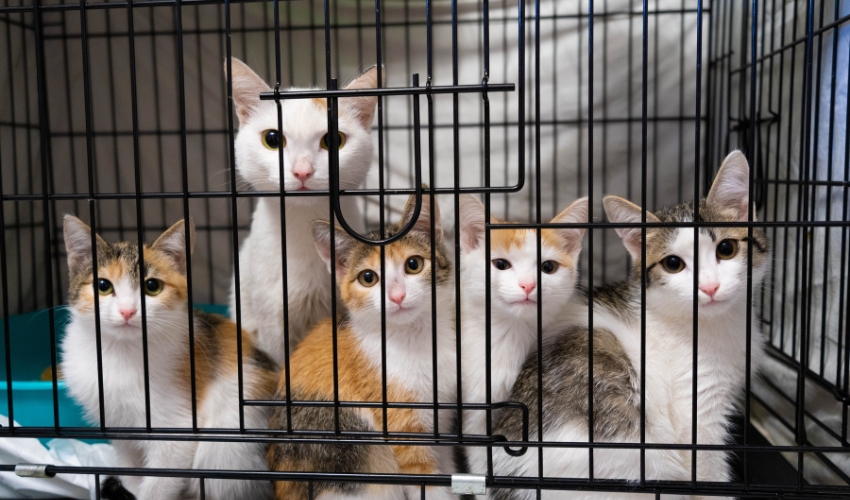With its warm and enticing aroma, cinnamon is a staple spice in many kitchens. As dog owners, it’s natural to wonder whether this popular spice is safe for our canine companions.
In this comprehensive guide, we will delve into the various aspects of cinnamon consumption for dogs, exploring its potential benefits and risks and shedding light on what every dog owner should know to ensure the well-being of their canine companions.
Is cinnamon harmful to dogs?

Cinnamon, derived from the bark of trees belonging to the Cinnamomum genus, is a spice known for its warm and aromatic flavor. It’s a common addition to many human dishes, beverages, and dog treats.
Well, is cinnamon harmful to dogs? Cinnamon is not toxic to dogs. Feeding cinnamon to dogs in small doses can provide several health benefits. However, when it comes to dogs, the use of cinnamon requires a more nuanced understanding.
What you should know about cinnamon
Types of cinnamon
Cinnamon comes in two main types: Ceylon cinnamon (considered “true” cinnamon) and Cassia cinnamon. While both types contain cinnamaldehyde, a compound responsible for the characteristic flavor, Cassia cinnamon has higher levels and can potentially cause concerns in large quantities.
Potential health benefits
Cinnamon is often praised for its potential human health benefits, including anti-inflammatory and antioxidant properties. Some believe these properties could extend to dogs, but it’s crucial to approach such claims cautiously and consult a veterinarian for accurate information.
In human nutrition, cinnamon is sometimes associated with blood sugar regulation. While there is limited research on its impact on dogs in this regard, diabetic dog owners may wonder about the potential effects of cinnamon on their pets. As always, it’s essential to consult with a veterinarian before introducing any new elements to a diabetic dog’s diet.
Concerns and risks for dogs
The primary concern with cinnamon and dogs lies in the presence of cinnamaldehyde (a naturally occurring flavor that gives the spice cinnamon its flavor and odor). In high doses, this compound can lead to potential health issues.
Additionally, cinnamon powder can be challenging for dogs to digest, potentially causing irritation or inflammation in the digestive tract.
Cinnamon in dog treats and food
Commercial dog treats
Many dog treats, especially those with aromatic flavors, may contain cinnamon. While small amounts are generally considered safe, it’s crucial to check the ingredient list and ensure that the cinnamon content is within safe limits for your dog’s size.
Or you are free to choose from a wide range of dog treats that are available at your local pet markets.
Homemade treats and meals
Some dog owners like to experiment with homemade treats and meals for their pets, so if you decide to include cinnamon in such recipes, moderation is key. It’s advisable to start with small amounts and monitor your dog for any adverse reactions.
Cinnamon essential oil
Cinnamon essential oil is highly concentrated and should be avoided in dog-related products. The ingestion or skin exposure to concentrated cinnamon oil can lead to adverse reactions, including skin irritation, gastrointestinal distress, or respiratory issues.
Signs of cinnamon toxicity
A dog consuming excessive amounts of cinnamon, whether in spice form or through treats, can lead to cinnamon toxicity. Symptoms may include vomiting, diarrhea, increased heart rate, and, in severe cases, liver damage. If you suspect cinnamon toxicity, seek immediate veterinary attention.
Cinnamon alternatives for dogs
Safe flavor alternatives
Consider safe alternatives such as ginger or turmeric if you want to add flavor to your dog’s treats or meals. Always ensure that any added ingredients are safe for canine consumption.
Consulting with a veterinarian
Consult your veterinarian when you doubt whether to include cinnamon in your dog’s diet. They can provide personalized advice based on your dog’s health, dietary needs, and potential sensitivities.
Health is wealth with Doobert!
As responsible dog owners, we must be attuned to our dogs’ needs, potential sensitivities, and any signs of discomfort or adverse reactions. Always consult with a veterinarian to ensure that we make informed choices that prioritize the health and well-being of our beloved canine companions.
In pet wellness, where every decision resonates with love and responsibility, we at Doobert are committed to providing valuable insights and shining brightly. As we navigate the intricate world of pet health, let us carry forward the wisdom gained from this guide, ensuring that every sprinkle of cinnamon becomes a gesture of care, contributing to a life of vitality, joy, and unwavering companionship.
Here’s to happy, healthy dogs and the loving bonds we share with them, one cautious step at a time! Learn more about pet resources, connect with other animal lovers, and become a Dooberteer.












